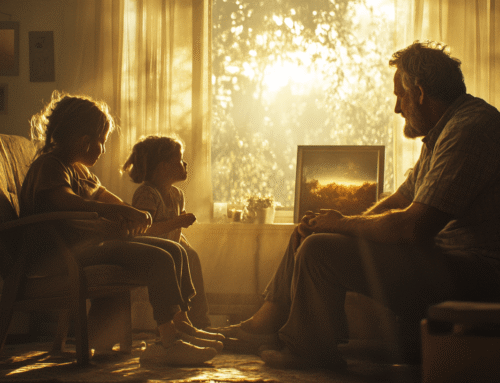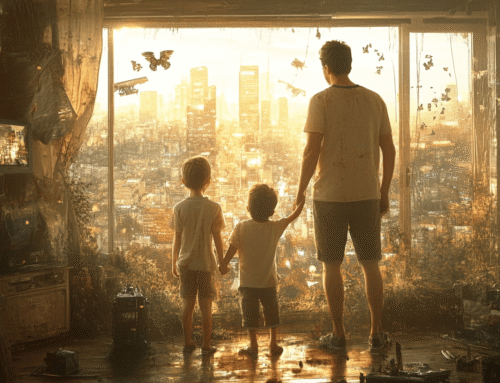1. The Premise
The documentary, produced by Del Bigtree (creator of VAXXED and host of The Highwire), investigates a controversial unpublished study conducted within the Henry Ford Health System by infectious disease expert Dr. Marcus Zervos.
The film claims the study compared vaccinated vs. unvaccinated children and allegedly found higher rates of chronic illness among vaccinated groups—but that the findings were never published due to fear of professional and political backlash.
2. The Health Crisis Framing
-
The film opens by highlighting the dramatic rise in chronic childhood illnesses in the U.S.:
-
40–54% of children now have at least one chronic health condition.
-
Autism rates rising from 1 in 10,000 (1980s) to 1 in 31 (today).
-
-
It argues these rapid increases cannot be genetic and must stem from environmental or medical causes—implying vaccines as a key factor.
3. The Vaccine Safety Controversy
-
Bigtree recounts his work on VAXXED and the backlash it faced, including being pulled from the Tribeca Film Festival.
-
Through interviews with parents, the film presents emotional testimonials from families who claim their children were severely injured or killed following vaccination (including HPV and MMR vaccines).
-
It criticizes the 1986 National Childhood Vaccine Injury Act, which shields vaccine manufacturers from liability.
4. The Legal and Scientific Challenges
-
Bigtree and attorney Aaron Siri file lawsuits against federal agencies (HHS, FDA, NIH), claiming the government has no robust safety studies for vaccines.
-
They highlight that no childhood vaccine has undergone a randomized, double-blind, placebo-controlled trial—the “gold standard” for drug safety.
-
The film argues existing trials are short (e.g., 5-day monitoring) and use other vaccines as “placebos,” which it likens to testing whiskey vs. vodka instead of whiskey vs. water.
5. Enter the Henry Ford Study
-
Dr. Marcus Zervos, previously respected for his role in the Flint water crisis and infectious disease work, agrees to conduct a retrospective vaccinated vs. unvaccinated study using Henry Ford’s extensive patient database.
-
The film portrays him as initially open-minded and committed to scientific truth, regardless of outcome.
-
After completing the study, Zervos allegedly refused to publish it, fearing professional ruin.
6. The Alleged Findings (Unpublished Study)
The film presents internal data from the Henry Ford birth cohort study (18,468 subjects; 1,957 unvaccinated) showing that vaccinated children had:
-
4.29x higher asthma risk
-
~6x more autoimmune disease
-
5.5x higher neurodevelopmental disorders
-
3x developmental delay
-
Zero ADHD, diabetes, or behavioral disorders among unvaccinated
-
2.5x overall increased likelihood of any chronic illness
-
83% of unvaccinated children were healthy at 10 years vs. 43% of vaccinated
The film claims autism differences were inconclusive due to low sample size but notes broader neurological issues were higher among vaccinated children.
7. Fear and Suppression
-
Hidden-camera footage allegedly captures Zervos admitting the study’s results were “important” and “devastating,” but saying publishing it would “finish” his career.
-
He references the backlash he faced during the COVID-19 hydroxychloroquine controversy as a reason for self-censorship.
-
The film frames this as an example of institutional pressure and censorship in medicine.
8. Reactions and Wider Implications
-
Bigtree and several experts argue that:
-
Science has become religious and politically biased in favor of vaccines.
-
Retrospective studies showing harm are ignored or discredited.
-
The medical establishment is afraid to challenge pharmaceutical power.
-
-
The film ends with a call for replication: encouraging independent scientists to conduct similar vaccinated vs. unvaccinated studies in other systems (e.g., Kaiser, Harvard Pilgrim, CDC’s VSD).
9. The Cease-and-Desist Letter
After production, Henry Ford Health sent a legal threat to the filmmakers, alleging defamation and claiming the study was not published due to serious data flaws, not censorship.
However, the documentary maintains that Dr. Zervos privately confirmed the study was sound and that his fear of reprisal—not data quality—prevented publication.
10. Closing Message
The film ends with a challenge to viewers:
“If vaccines truly make children healthier, why has no major study ever shown vaccinated children to be healthier than the unvaccinated?”
It urges medical institutions to replicate the research and parents to question the official narrative.
💡 Key Themes
-
Institutional fear and scientific censorship
-
Rising chronic illness in children
-
Lack of placebo-controlled vaccine trials
-
Pharmaceutical and government influence
-
Courage vs. career in medical truth-telling
⚖️ Note of Balance
While the film presents itself as an exposé, its claims conflict with mainstream scientific consensus.
Public health authorities and peer-reviewed research overwhelmingly support vaccines as safe and effective, emphasizing that correlation ≠ causation and that retrospective studies cannot establish proof of harm.






